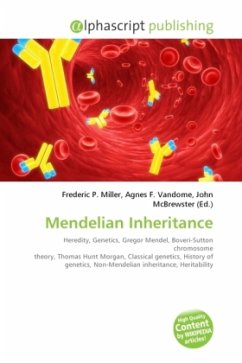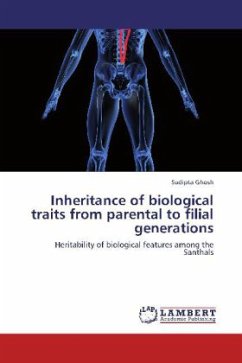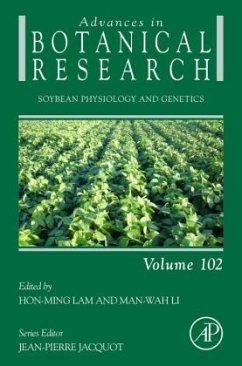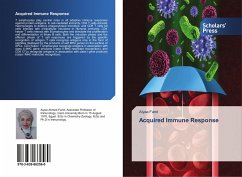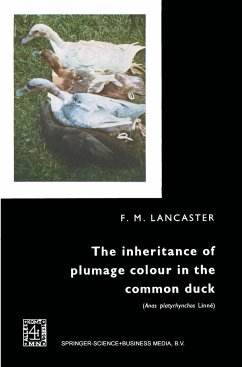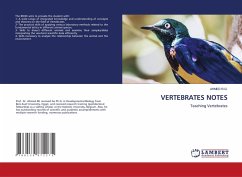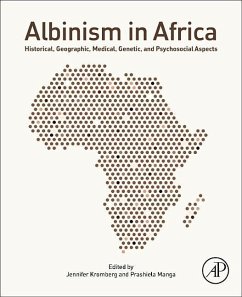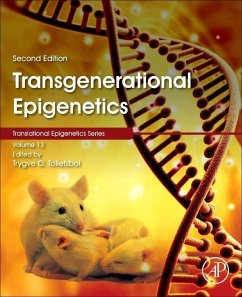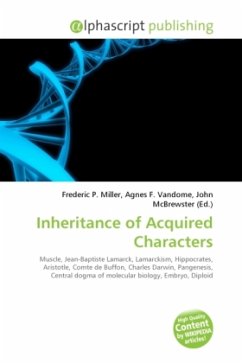
Inheritance of Acquired Characters
Versandkostenfrei!
Versandfertig in 6-10 Tagen
39,99 €
inkl. MwSt.

PAYBACK Punkte
20 °P sammeln!
The inheritance of acquired traits (or characteristics) is a hypothesis about a mechanism of heredity by which changes in physiology acquired over the life of an organism (such as the enlargement of a muscle through repeated use) may purportedly be transmitted to offspring. It is also commonly referred to as the theory of adaptation equated with the evolutionary theory of French naturalist Jean-Baptiste Lamarck known as Lamarckism. The idea was proposed in ancient times by Hippocrates and Aristotle, and was commonly accepted near to Lamarck's time. Comte de Buffon, before Lamarck, proposed ide...
The inheritance of acquired traits (or characteristics) is a hypothesis about a mechanism of heredity by which changes in physiology acquired over the life of an organism (such as the enlargement of a muscle through repeated use) may purportedly be transmitted to offspring. It is also commonly referred to as the theory of adaptation equated with the evolutionary theory of French naturalist Jean-Baptiste Lamarck known as Lamarckism. The idea was proposed in ancient times by Hippocrates and Aristotle, and was commonly accepted near to Lamarck's time. Comte de Buffon, before Lamarck, proposed ideas about evolution involving the concept, and even Charles Darwin, after Lamarck, developed his own theory of inheritance of acquired characters, pangenesis. The basic concept of inheritance of acquired characters was finally widely rejected in the early 20th century. Long after triumph of the central dogma of molecular biology, which is often equated with the idea that the DNA of a cell alone determines its fate, the theory of adaptation continued to attract attention.



